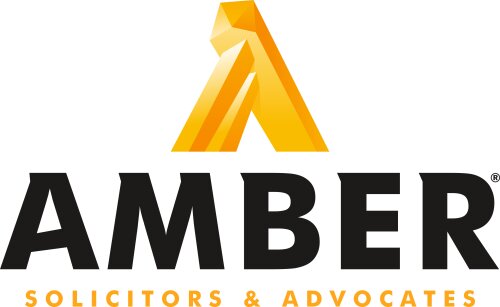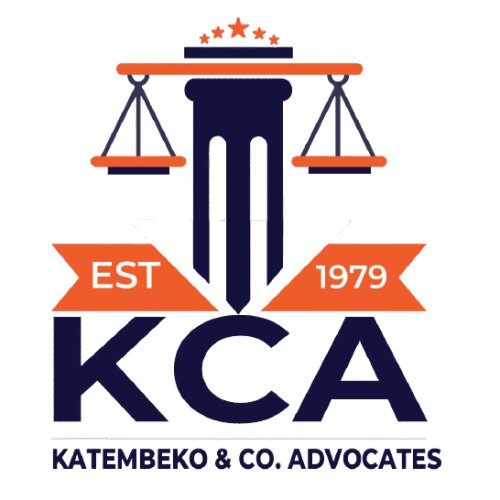Best Advertising and Marketing Lawyers in Uganda
Share your needs with us, get contacted by law firms.
Free. Takes 2 min.
Or refine your search by selecting a city:
List of the best lawyers in Uganda
About Advertising and Marketing Law in Uganda
Advertising and marketing in Uganda are thriving industries, driven by increasing consumer demand and the advent of digital platforms. Businesses use advertising to reach potential customers through various media channels, including print, broadcast, online, and out-of-home advertisements. The legal framework governing these activities is essential in ensuring that advertising practices are honest, transparent, and not misleading to consumers. Advertising and marketing laws in Uganda are designed to protect consumer rights, promote fair competition, and maintain ethical standards in the industry.
Why You May Need a Lawyer
There are several scenarios in advertising and marketing where legal assistance might be necessary. Common situations where individuals or businesses may require legal help include:
- Ensuring compliance with advertising standards and regulations.
- Drafting or reviewing marketing contracts and agreements.
- Resolving disputes related to intellectual property infringement.
- Handling false advertising claims or complaints.
- Negotiating partnerships or endorsement deals with celebrities or influencers.
- Understanding tax implications related to marketing expenditures.
- Providing guidance on consumer protection laws.
Obtaining legal support can help navigate these complex issues and mitigate potential risks or liabilities associated with advertising and marketing practices.
Local Laws Overview
Advertising and marketing in Uganda are regulated by a combination of statutory laws, industry guidelines, and regulatory bodies. Some of the key legal frameworks include:
- The Uganda Communications Act: This act regulates telecommunications and broadcasting services. It ensures that advertised content on broadcast media meets certain standards.
- The Consumer Protection Act: This act safeguards consumer rights against unfair trade practices, deceptive advertising, and provides mechanisms for consumer redress.
- The National Information Technology Authority Act: Regulates the use of information and communication technology, including online advertising practices.
- The Uganda Law Society: Offers guidelines and oversight for legal practices, including those involved in advertising law.
In addition, the Uganda Advertising Standards Alliance sets ethical standards and guidelines specific to advertising content, helping to promote transparency and accountability in marketing communications.
Frequently Asked Questions
What are the legal requirements for advertising in Uganda?
Advertisers must comply with the Uganda Communications Commission regulations, ensure truthful representation, observe consumer protection laws, and adhere to any industry-specific guidelines.
How can I protect my intellectual property in advertising content?
Register trademarks, copyrights, and patents with the Uganda Registration Services Bureau and consider using contracts to protect proprietary advertising material.
Are there specific rules for online and social media marketing?
Yes, online marketing must comply with data protection regulations and avoid misleading content to protect consumer rights online.
What should I do if I receive a complaint about an advertisement?
Promptly address the complaint, verify compliance with set guidelines, and consider consulting a lawyer for advice if the case escalates.
Can I use comparative advertising in Uganda?
Yes, comparative advertising is allowed as long as it is truthful, non-deceptive, and complies with local advertising standards.
Is permission required to use a person's image in ads?
Yes, obtaining written consent is essential when using an individual's likeness for commercial purposes in advertisements.
How do I handle disputes over advertising contracts?
Address disputes through negotiation, and if unresolved, consider mediation, arbitration, or legal proceedings with a qualified lawyer's guidance.
Are there any restrictions on advertising to children?
Yes, there are stricter standards that focus on protecting children from harmful or misleading content, limiting certain product promotions.
What constitutes unfair advertising practices?
Practices such as false claims, hidden charges, bait and switch tactics, or failing to disclose critical information are considered unfair.
How does the law address misleading advertisements?
The law prohibits deceptive advertisements and provides penalties for those found guilty of misleading consumers through false information.
Additional Resources
For more information or assistance related to advertising and marketing in Uganda, consider reaching out to the following organizations:
- Uganda Communications Commission: Oversees communications and broadcasting services.
- Consumer Protection Associations: Advocate for consumer rights and fair practices.
- National Information Technology Authority-Uganda (NITA-U): Regulates online marketing practices.
- Uganda Advertising Standards Alliance: Provides guidelines and ethical standards for advertisers.
- Uganda Registration Services Bureau: Manages intellectual property rights registration.
Next Steps
If you require legal assistance in advertising and marketing, consider taking the following steps:
- Identify the legal issue or concern you are facing.
- Compile relevant documents or evidence related to the issue.
- Research legal professionals with expertise in advertising and marketing law.
- Schedule consultations to discuss your situation and explore options.
- Evaluate the advice provided and choose a lawyer to represent your interests if necessary.
Taking timely legal action can help protect your rights and ensure compliance with Ugandan advertising laws, promoting ethical and successful marketing practices.
Lawzana helps you find the best lawyers and law firms in Uganda through a curated and pre-screened list of qualified legal professionals. Our platform offers rankings and detailed profiles of attorneys and law firms, allowing you to compare based on practice areas, including Advertising and Marketing, experience, and client feedback.
Each profile includes a description of the firm's areas of practice, client reviews, team members and partners, year of establishment, spoken languages, office locations, contact information, social media presence, and any published articles or resources. Most firms on our platform speak English and are experienced in both local and international legal matters.
Get a quote from top-rated law firms in Uganda — quickly, securely, and without unnecessary hassle.
Disclaimer:
The information provided on this page is for general informational purposes only and does not constitute legal advice. While we strive to ensure the accuracy and relevance of the content, legal information may change over time, and interpretations of the law can vary. You should always consult with a qualified legal professional for advice specific to your situation.
We disclaim all liability for actions taken or not taken based on the content of this page. If you believe any information is incorrect or outdated, please contact us, and we will review and update it where appropriate.
Browse advertising and marketing law firms by city in Uganda
Refine your search by selecting a city.
















